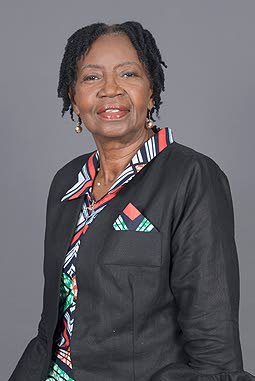‘Reconquering’ Tobago: The formula of Justice Gorrie
Written by Newsday on January 23, 2025

Dr Rita Pemberton
THE IMPACT of the union of Trinidad and Tobago was most immediately felt in the legal sphere, for it resulted in the termination of the laws of Tobago and the automatic application of the laws of Trinidad to Tobago.
There was neither a period of preparation, explanation nor adjustment of the existing legal apparatus in Tobago for operation under the laws of Trinidad, and the population was not made aware of the changes in the modes of operations of the legal system. Hence the administration of Tobago was not prepared for the changes that the new association would place on the people of the island.
Although, like the Tobago Assembly and Council, the Legislative Council of Trinidad was also dominated by large planters, this was not going to be a smooth transition because of the different historical experiences of both islands, as a result of which there were situations in Trinidad which did not exist in Tobago, and which warranted legal systems which were not then necessary in Tobago.
In addition, as was demonstrated in matters pertaining to land sales, the situation in Tobago required legal provisions which were not included in the laws of Trinidad and which the authorities in Trinidad were not disposed to favour. There was no warning of the impending cloud over the island because of the legal change that came with union.
Under the laws of the union, the Chief Justice of Trinidad was required to visit Tobago periodically. Then Chief Justice Sir John Gorrie held his first sitting at the court on January 15, 1889, when, to the shock of the island’s planter class, he dismissed the three cases which were brought by planters against metayers.
Following the provisions of the Ordinance of the Trinidad Judicature, Gorrie allowed cases to be heard under the
in forma pauperis provision, but he waived the requirements because he noted that the state of poverty of the metayers restricted their access to the courts for conflict resolution.
This was a signal event in the history of Tobago, because it was a major departure from the traditional way disputes had been handled on the island. With their colleagues and friends serving as the dispensers of justice, the members of the planting community had been accustomed to having their own way and many disputes did not even reach to the court.
While the metayers were jubilant at the move away from the arbitrariness of the prevailing system, and were anxious to bring more matters before the judge, who they considered to be their friend, the planters were angry. They were concerned about the possible erosion of their controlling power on the island and were appalled at what they considered a travesty of justice. Gorrie was their enemy.
Gorrie provided explanations for the course of action which he took, which revealed the poor state of the judicature in Tobago. These revelations were later supported by Justice Lewis, who conducted cases in Tobago in October 1889.
The island’s legal department was made up of two solicitors, one of whom Gorrie described as incompetent, which is not surprising since many officials in Tobago were unqualified for the positions they held. The officials were friends of the planters and, like them, they viewed the metayers with disgust and would usually settle disputes in the planters’ favour. The other solicitor was a new arrival.
The lack of money in circulation on the island took its toll on the judicial system. Ordinary folk had neither the means nor knowledge of the process to bring matters before the court.
There was a stark difference between the earnings of metayers and the high cost of litigation on the island. Lawyers’ fees of three guineas (one guinea = 21 shillings) and court fees of five shillings for summons were beyond the reach of the metayers, whose daily wage was eight pence.
The metayers had not had their canes ground for over two years, causing them to be unable to afford the high Trinidad court fees. Many of them were indebted to the planters with whom they had conflicts, and they dared not take them to court for fear of losing access to the land for which they had already paid with their labour to the estate.
In addition, the metayers had no knowledge of the rules of procedure to enter their actions; the process involved submitting the affidavits and making application to the Commissioner of the Supreme Court for their matters to be heard.
Despite these impediments, metayers looked to Gorrie for salvation. They flocked to see and hear him and brought their grievances, old and new, to his court, where they obtained justice.
In addition, there was more open expression of discontent across the island. Labourers clamoured for better wages which, they argued, should be on par with those paid in Trinidad, while metayers expressed dissatisfaction with metayage and sought improved terms and conditions of work.
This wave of discontent was unpalatable to the planters, who were wounded by Justice Gorrie’s judgements against them. They did not want the status quo to be disturbed and blamed Gorrie for stirring up trouble on the island.
Justice Gorrie, however, did not restrict his presence in Tobago to dealing with court matters. He felt that the metayage system was exploitative and he suggested a formula through which the metayers could liberate themselves from the restrictions of the system.
He encouraged the metayers to develop greater self-reliance by making maximum use of the Trinidad market to increase production and decrease dependence on imports.
He suggested the establishment of Penny Banks and the encouragement of thrift among the youths. He visited the Agricultural Society with a view to locating a branch of the Trinidad Public Library there.
His main message to the people of Tobago was that through industry and labour, greater production, and the creation of credit institutions on the island they could “reconquer” Tobago. This was considered bad news by planters, the present “conquerors,” who panicked and were determined to get rid of Justice Gorrie.
The post ‘Reconquering’ Tobago: The formula of Justice Gorrie appeared first on Trinidad and Tobago Newsday.




